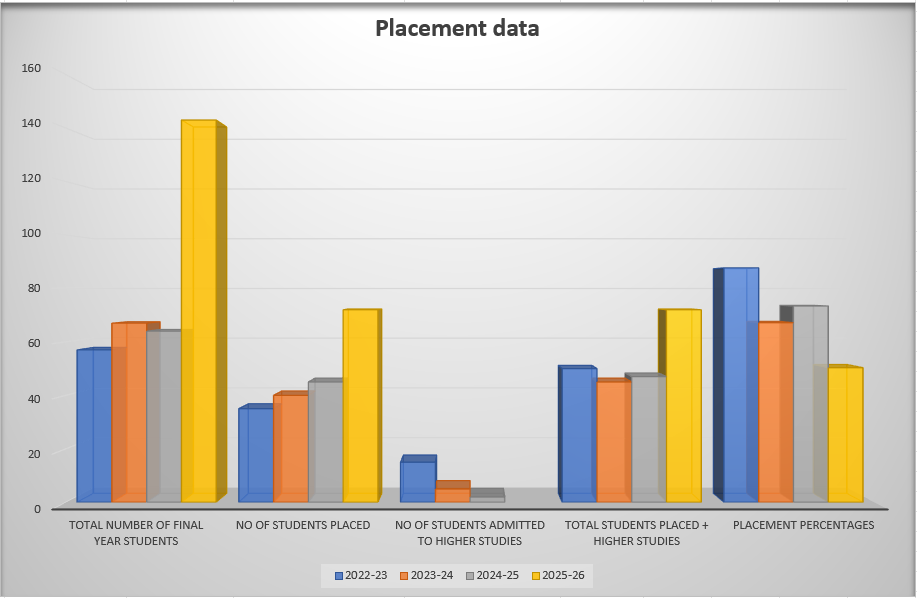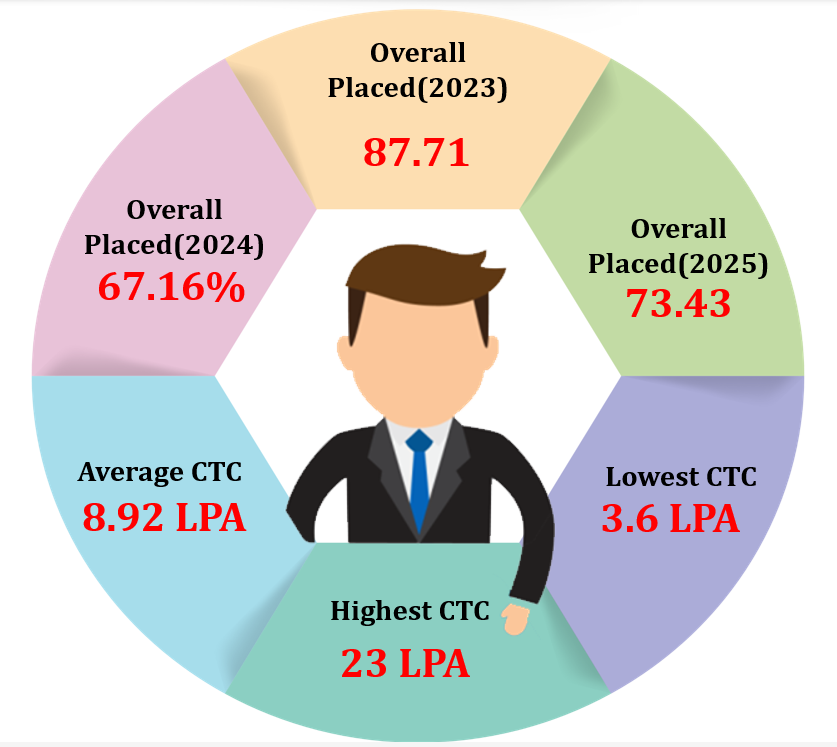A New Beginning!
The Department of Artificial Intelligence and Machine Learning was formally inaugurated on 02 August 2019, marking a significant milestone in the history of our institution. This momentous occasion laid the foundation for offering an undergraduate program in Artificial Intelligence and Machine Learning one of the most in demand and future ready domains.
The department began its journey in 2019 with an initial sanctioned intake of 60 students, which has grown substantially to 360 students from the academic year 2024–25. We offer a wide range of elective courses, enabling students to explore diverse areas of interest and tailor their learning paths.
Our curriculum is designed to impart strong technical expertise, foster problem-solving abilities, and encourage innovation by keeping pace with emerging technologies. The department actively promotes collaborative and interdisciplinary research through well-established research groups and state-of-the-art facilities. Faculty members are currently guiding Ph.D. scholars from both industry and academia, reflecting our strong research culture.
It is inspiring to see our students enthusiastically engaging in addressing real-world technological challenges with dedication, perseverance, and a spirit of innovation. By integrating practical skills and domain knowledge into the learning process, the department strives to nurture dynamic, socially responsible, and sensitive professionals ready to contribute meaningfully to society.




To emerge as a leading department in AI and ML by preparing skilled, responsible, and eco-friendly professionals who use technology to improve society.
● To equip students with in-depth knowledge in Artificial Intelligence and Machine Learning, built upon a robust foundation in Computer Science and Engineering through industry focused curriculum with practical learning.
● To encourage research and innovation through industry partnerships and sustainable technology practices.
● To inspire students toward ethical leadership and entrepreneurship through innovative and collaborative student-led activities.